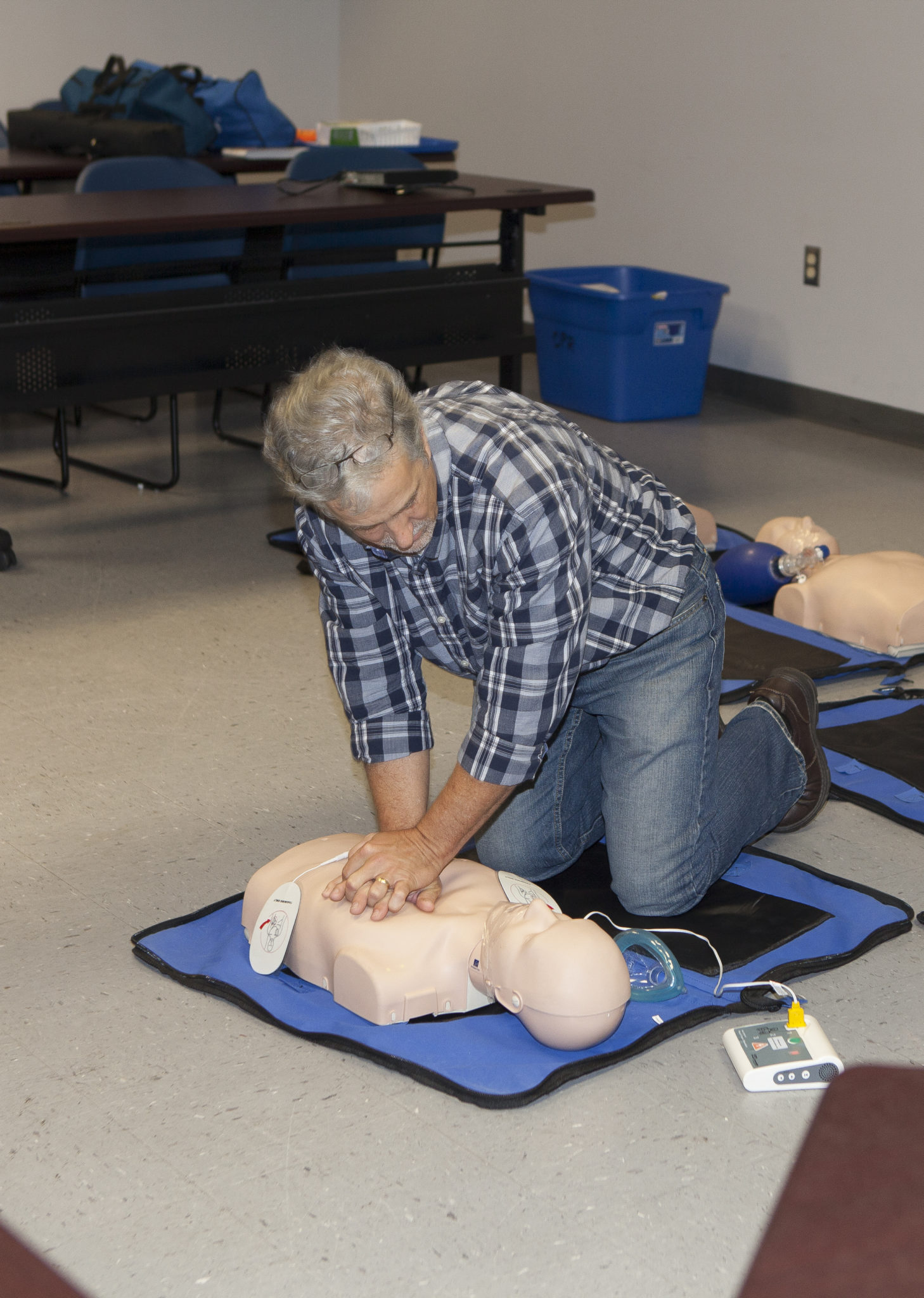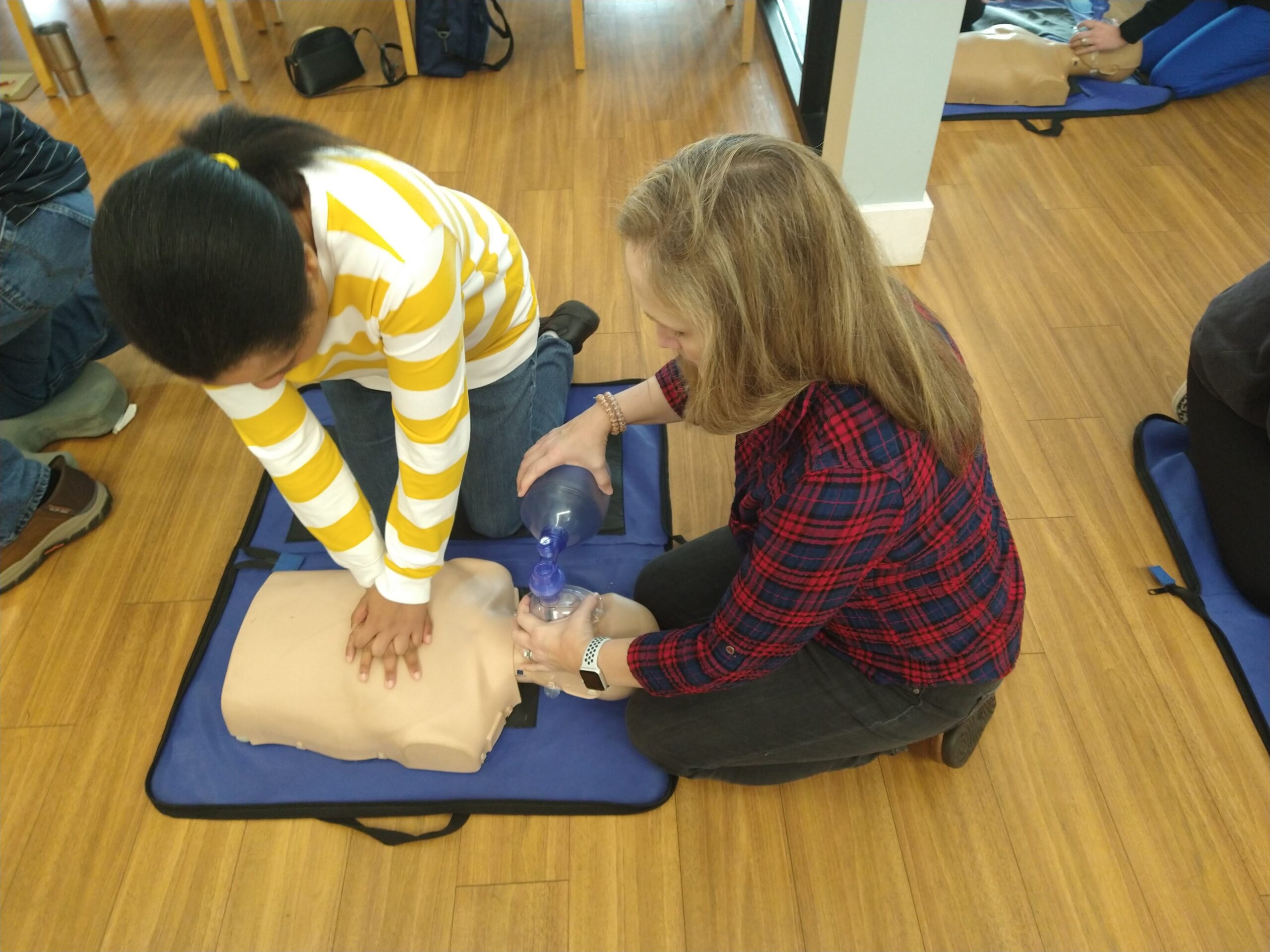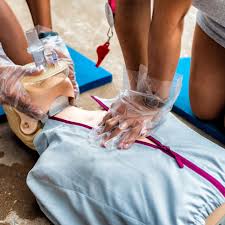PULSE CPR AND FIRST AID NEWS AUGUSTA GA …..Congenital heart defect survivor overcomes anxiety as an adult
PULSE CPR AND FIRST AID NEWS AUGUSTA GA …..Congenital heart defect survivor overcomes anxiety as an adult As with most Saturdays, Michael King was on the basketball court refereeing another game in 2011 when he started feeling hot and tired. He stepped outside for some fresh air. A friend went to check on him but couldn’t find a pulse, even though King was fully conscious. The friend called 911.
Until that day, the then-37-year-old had never let his heart health interfere with his active lifestyle. He was born with a heart defect called d-transposition of the great arteries in which the vessels attached to the heart are reversed. He had corrective open-heart surgery when he was 2 months old and had been taking minimal medication to manage it ever since.
That changed for the North Carolina resident on Dec. 10, 2011. As an ambulance rushed him to the hospital, his heart rate soared to 240 beats per minute, compared to a typical resting heart rate of 60 to 100. He was experiencing atrial fibrillation (AFib), the most common irregular heartbeat, or arrhythmia. More than 2.7 million Americans live with AFib, which can lead to blood clots, stroke and heart failure.
Michael King with his cardiologist Dr. Brenda Armstrong. (Photo courtesy of Michael King)
King’s AFib was connected to his heart operation in infancy. Scarring in the atrium may have interrupted or rerouted electrical impulses that trigger the heart to pump blood through the body, according to his cardiologist Dr. Brenda Armstrong at Duke University Hospital in Durham. AFib also can be caused by other benign conditions or unknown reasons.
At the hospital, doctors shocked his heart into a normal rhythm, but multiple heart ablations and various medications to control his heartbeat didn’t work.
King needed a pacemaker. Six days after he arrived, doctors implanted one in his chest. His heart issue had been addressed, but he was not ready for what came next: the emotional toll.
“I’d never had those feelings before,” King said. “Growing up, I played sports and never had any issues.”
Two days after receiving the pacemaker, King said he sobbed as he left the hospital. He didn’t want to go. He felt safe there.
“I was so happy to be alive, but scared at the same time,” he said.
It’s common for heart surgery patients to experience anxiety, said Armstrong, who has treated King since birth.
King had “little experience with surgery and heart monitoring,” she said. “The need to put in a pacemaker was an abrupt interruption in his normal adult lifestyle – and one that could have been fatal. That would have created a tremendous amount of anxiety.”
King was afraid of being alone. He feared dying and leaving his family behind. For several years, he suffered from panic attacks.
He sought help from a mental health therapist at the hospital who taught him relaxation techniques. Later, he consulted a psychiatrist to learn how to control his fears. King stopped refereeing for a while because the sensation of feeling his heart rate increase worried him, but learning how his pacemaker worked helped calm his mind.
Now 43, King said the support of family, friends and his church congregation was invaluable. He’s back to refereeing middle school and high school baseball games and has also started giving back. Every year since his pacemaker surgery, he has helped raise money for the American Heart Association’s Jump Rope For Heart at schools in his hometown of Princeton.
King still takes three medications twice a day to manage his condition, but he’s back to an active lifestyle. Last summer, he visited Walt Disney World with his wife Jaime, daughter Madison, 18, and son Jaxson, 13.
“I rode everything I wanted to ride and walked circles around my family,” he said. “We had a blast.”
PULSE CPR AND FIRST AID NEWS AUGUSTA GA …..Congenital heart defect survivor overcomes anxiety as an adult.
Pulse CPR and First Aid School / (Pulse Fitness)
4015 Washington Rd Suite #H
Martinez, GA 30907
Located in Ashley Square…Just down and across from Gerald Jones Honda
John Rogers
BLS Instructor
pulsecpr967@gmail.com
706-901-7CPR (7277)




